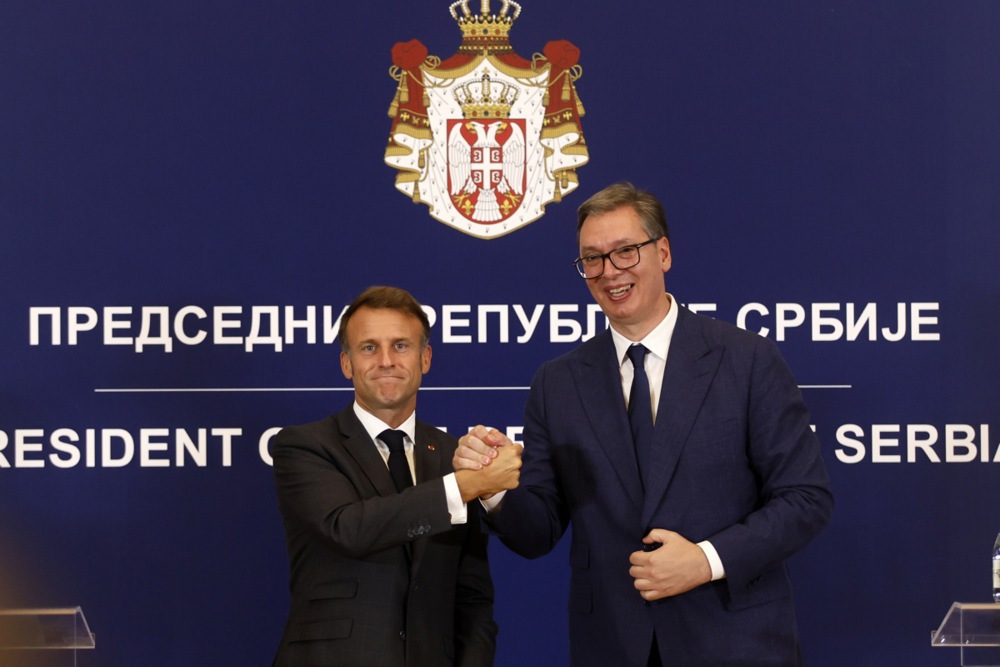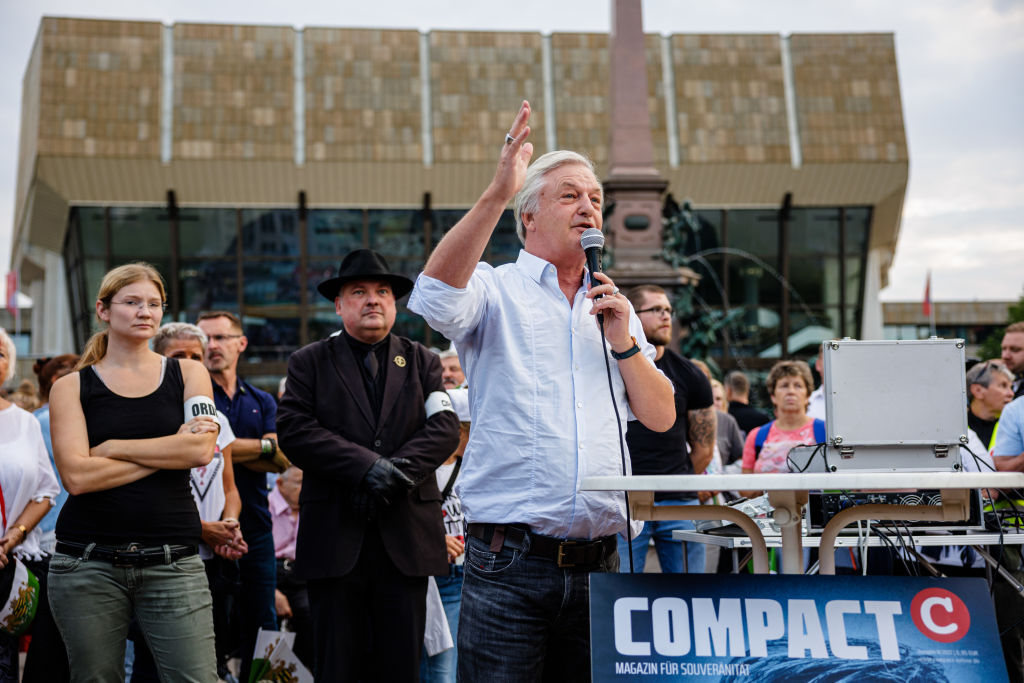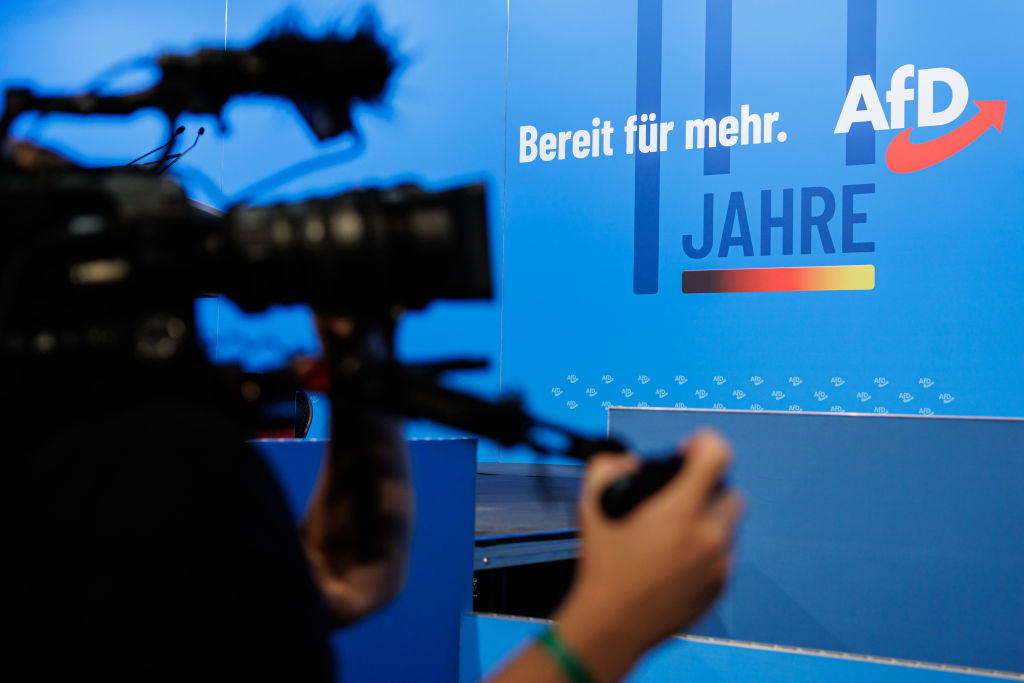Shalva Papuashvili, the Speaker of Parliament in Georgia, has signed a controversial bill into law that opponents have described as “curbing LGBTQ rights”, despite strong EU opposition.
The bill defines marriage as a voluntary union between two individuals of different biological sexes to create a family, angering many Western leaders.
Pressure from the European Union and other powers initially resulted in Georgia’s pro-EU President Salome Zurabishvili refusing to sign the law, with reports indicating that the leader was seeking to avoid controversies surrounding “homophobia” and “LGBTQ issues” in light of the country’s upcoming October 26 elections.
The head of state also refrained from vetoing it, a move that would have sent it back to the Tiblisi parliament and delaying its possible implementation for weeks.
Dear President @Zourabichvili_S, I have great respect for your commitment to Georgia's European path.
Our meeting comes at an important moment—the upcoming elections will be a crucial test for Georgia’s democracy.
And a defining moment for the future of EU-Georgia relations. pic.twitter.com/kHQiqFtp4X
— Ursula von der Leyen (@vonderleyen) October 2, 2024
Instead, the bill was signed into law by Papuashvili on October 3, with the official being pictured doing so in front of the Georgian and EU flags.
In a later statement on Facebook, the speaker said that the legislation did “not reflect current, temporary, changing ideas and ideologies, but is based on common sense, historical experience and centuries-old Christian, Georgian and European values”.
“We saw that the prevailing currents of civilization were heading in the wrong direction,” he said regarding the nations that had embraced LGBT principles.
“At the same time, in those same foreign countries, we see the spirit of millions of people aligned with the principles of this law.”
He called out Zurabishvili for what he said was her “refusing to protect families and children” and her decision to “hide behind anti-national opposition”.
Papuashvili said: “The law protects the rights of all citizens, including freedom of expression so that the rights of others are not violated, which is the essence and idea of true democracy.”
He pointed out that the new legislation had broad support and that in May “nearly one million citizens of Georgia took to the streets … effectively creating a referendum in support of this law”.
Because of that backing, together with that of the clergy, Papuashvili said that “signing this law is the most legitimate act [he could] undertake”.
Papuashvili had previously urged Georgia’s international partners to adhere to their standards of non-interference.
“Foreign politicians arrive [in Georgia] and take direct political positions of one side or another. It is an influence on the electorate that is anti-democratic,” he said.
Moscow has accused Washington of plotting a “Tbilisi maidan” event aimed at an illegal coup of the Georgian Government, the TASS news agency has reported. https://t.co/TULfiok8sf
— Brussels Signal (@brusselssignal) August 27, 2024
Critics said the bill mirrored Russian legislation to “restrict LGBTQ propaganda”. Proponents said it was a return to normalcy and were supported by the influential Georgian Orthodox Church.
The bill states that it “concerns restricting, in educational institutions and TV broadcasts, the propaganda of same-sex relationships and incest”.
It was strongly criticised by the EU and a number of NGOs.
An EU spokesperson told Brussels Signal: “The package on ‘family values and protection of minors’ undermines the fundamental rights of Georgian people and risks further stigmatisation and discrimination of part of the population.”
“The EU regrets that legislation with important repercussions on the EU integration path has been passed without due public consultations and a thorough analysis of its compliance with European and international standards.”
“Ensuring and upholding human rights is at the core of the enlargement process, annually assessed within the European Commission’s enlargement report.”
“The EU recalls that Georgia’s accession process is de facto halted and urges the authorities to recommit to the EU integration path.”
When the Georgian parliament voted on the bill in September, it passed despite being boycotted by the opposition.
Introduced by the ruling Georgian Dream party, the bill was designed to enshrine traditional family values into the Constitution while imposing significant restrictions on LGBTQ-inspired changes.
If finally approved, the bill would create a framework to ban Pride events and public displays of LGBTQ+ symbols, such as the rainbow flag.
Gender transitions and same-sex adoption would be prohibited and same-sex marriages conducted abroad would be rendered void.
LGBT propaganda in the media and educational institutions would be outlawed. The law would make it illegal for broadcasters, advertisers, and cinemas to air or screen scenes depicting same-sex relationships.
Article 8 of the bill explicitly prohibits broadcasters from distributing content that “promotes identification with a gender other than one’s biological sex or relationships between individuals of the same biological sex based on sexual orientation”.
Individuals who disseminate such restricted information could face fines of around €350, while legal entities could face fines up to €1,050, with restricted materials confiscated.
Journalists have said the LGBT+ community fear being prosecuted.
Opponents have said the new bill went against the country’s Constitution, European norms and human rights conventions, thus violating freedom of expression, freedom of the press and freedom of assembly and association.
The Speaker of the Georgian Parliament, Shalva Papuashvili, announced his decision to sign the Law on Family Values and Protection of Minors, which President Salome Zourabichvili previously returned unsignedhttps://t.co/tovbXENLdf pic.twitter.com/I71llJCHD2
— Ghia Abashidze (@ghiageo) October 3, 2024





